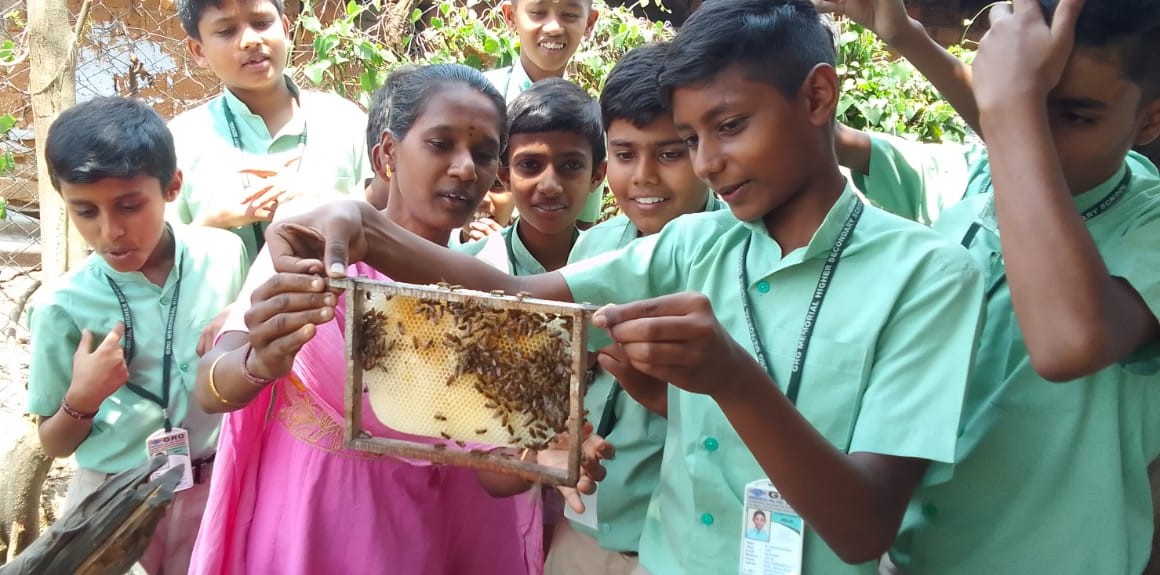Uplifting beekeeping training capacity in Nilgiris
In India, Bees for Development has been working with Keystone Foundation since 1993 to empower indigenous people and local communities in and around the Nilgiris Biosphere Reserve.
In 2022 we delivered a Training of Trainers project, upskilling 35 local people and beginner beekeepers so that they could become independent and self-confident beekeepers able to train others in their communities. The urgent need for the more skilled beekeeper trainers has been raised by government agencies, local NGOs and community associations. To support this work Keystone Foundation upgraded the training apiary at their premises in Kotagiri, the trainees were helped to establish apiaries of their own so they could grow and progress as independent beekeepers, and we published a practical training manual.
The overall goal of the project was to support beekeeping development in the Nilgiris – in Kotagiri, Aracode, Konavakarai, Pillur, Sigur, Hasanur, (Tamil Nadu) and in Wayanad (Kerala). The trainees were provided with knowledge and skills in beekeeping and apiary management and were given bee colonies of their own so they could gain hands-on experience outside of the formal training programme. Any doubts and queries which occurred whilst the trainees were engaged in their own beekeeping were raised in the monthly training sessions, which combined discussion on practical challenges and experience sharing. We deliberately encouraged women’s participation. Now Keystone Foundation is in the process of being registered with the Government of India’s National Bee Board as a certified training organisation.
Sathya of Sigur explained how she benefitted from the training programme, “I have gained so much confidence in terms of handlings bees. Before this training opportunity I never used to go anywhere near beehives, let along train other people. I am now ready to give training to others and there are four people who are willing to take the training in my village. I am mesmerised by the roles the different bees adopt – the workers, drones, and the queen. Before I took this training, I used to see bees flying and feeding on flowers. Now I know all about the work that they do”.

Another female trainee, Prema, is keen to share the new knowledge with students, “In May children from nearby villages of Annaikatty and Chokanalli came to the field centre in Vazhaitottam. I was able to open a beehive, show them the bees and explain everything. Not only that I was also able to sell some honey and I have learned that there is a big demand for honey. I have placed my bees near my coffee plants, in my backyard and I have seen bees forage on the coffee flowers. This year my coffee yield was greater than before. I am also interested in stingless bee beekeeping and I want to learn about Apis florea”.

Bojan from Thottiling has been using his new–found confidence to share his knowledge and experience on All India Radio where he was invited to speak about bees on a radio show, “I participated in a radio programme about beekeeping on AIR and am teaching more and more people about beekeeping. I share my knowledge with anyone who asks. I now feel very confident as a beekeeper and I can collect bees from the wild. For me the best thing about beekeeping is that I can get an income from honey selling, even as I get older. My plan is to have 32 bee colonies by next year, to plant different types of bee forage and become a resource person in any beekeeping training programme”.
See the original article by Janet Lowore on the Bees for Development website
Learn more about the Keystone Foundation
